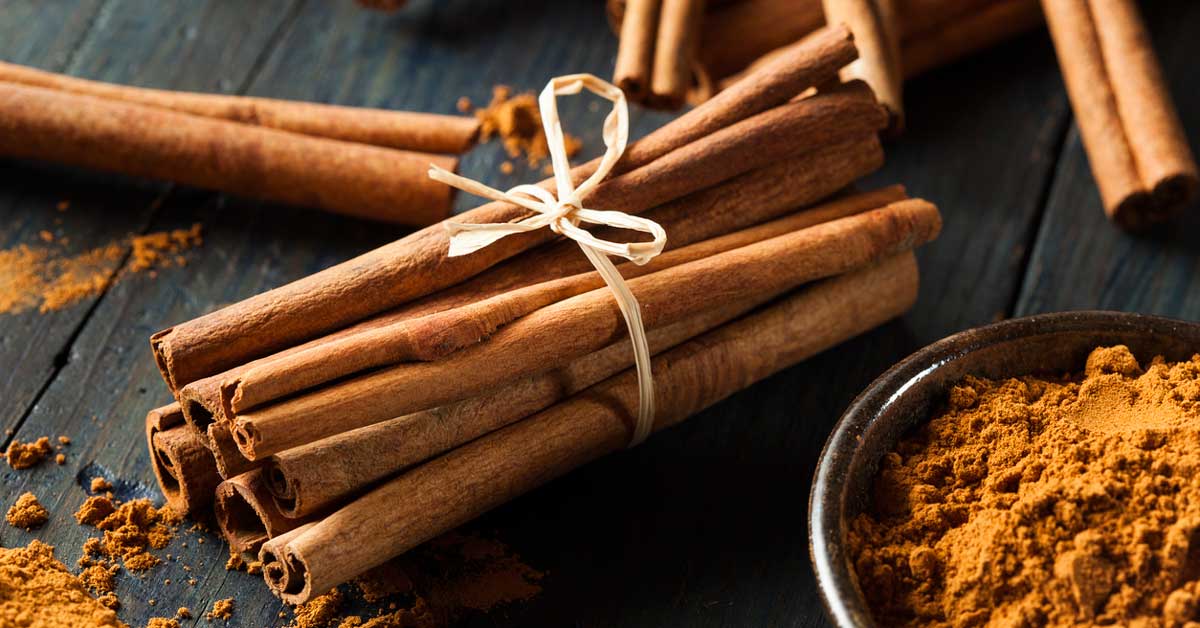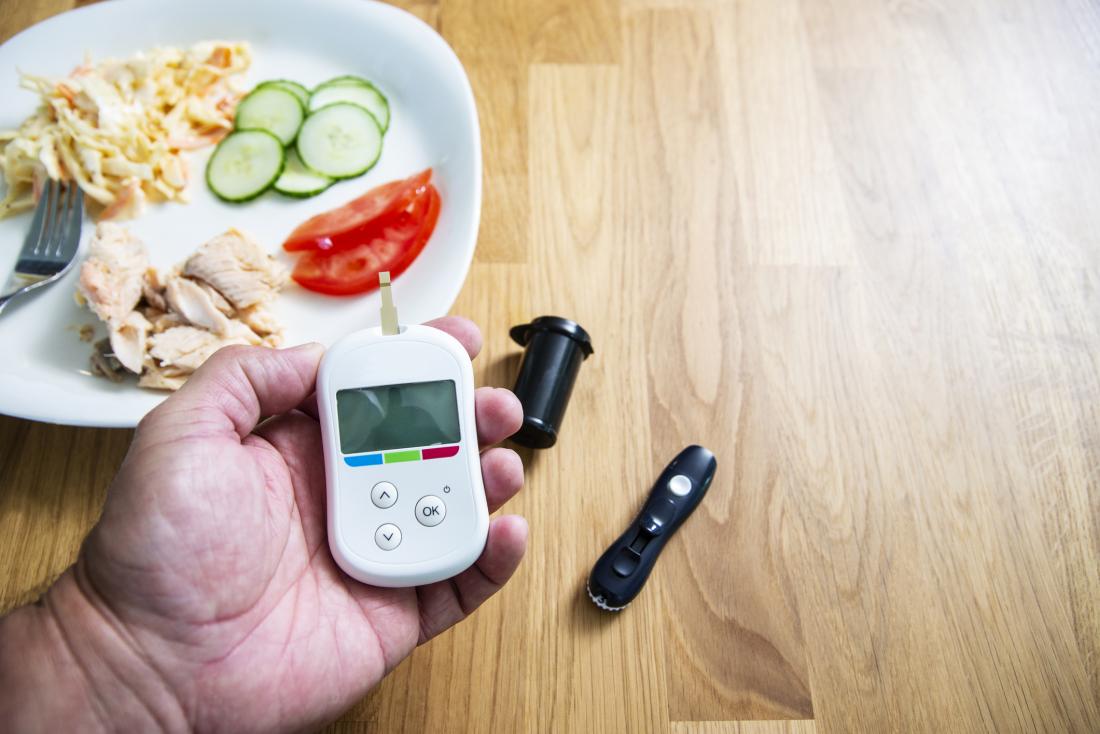Are you worried about sugar level in your body? Diabetes is a condition that impairs the body's ability to process blood glucose. Well! Read natural treatments & necessary precautions to overcome this problem. You can ask your query to both Allopathy & Ayurveda experts.
Popping a pill for every illness is a common course we take for most lifestyle diseases. We ignore the fact that nature offers some of the best medicines. New studies show that diabetics are at a much higher risk of neo-degenerated diseases, nearly double the risk of cancer and heart disease. It’s time now we look at eliminating the causes of the disease rather than just bandaging the problem and controlling symptoms with medication which comes with innumerable side effects. Here are 5 exceptional foods to heal diabetes.
1. Cinnamon
We all know about this spice in our kitchen, but do you know that it was used as a medicine in ancient times? The anti- diabetic compounds in cinnamon reduce the rate at which glucose enters our body. It improvises glucose uptake by the cells and helps with blood sugar spikes. Regular dosage reduces fasting blood sugar as well as elevated levels of cholesterol in the body. The dosage recommended for diabetics is between 3-6 grams a day of the cinnamon powder.
2. Daruhaldi
This thorny herb has been used as a medicine for the longest time. Nature has indeed provided us with all these herbs that we have been using and have their descriptions in our Vedic literature. The root of the herb is ground into a powder and can be taken at least 2 times in a day. The herb stimulates the pancreas to release insulin in the blood and also helps with insulin resistance among the cells. Hence, glucose enters the cell providing energy and purifying the blood of any sugar.
3. Turmeric
A natural anti-diabetic, anti- cancer anti-inflammatory and anti- allergic, haldi or turmeric helps with insulin resistance, allowing glucose to enter the cells effectively. Diabetics should drink a cup of turmeric tea i.e. add a pinch of pure turmeric in a glass of water allow it to boil and drink. This also works very well for any inflammation in the body, which is common with diabetics.
4. Coconut oil
Coconut oil is an effective and natural way to cure diabetes. Coconut oil contains lauric acid and medium chain fatty acids that are lighter than glucose, so it easily gets into the cells providing super fuel to the cells without any need of insulin. Coconut fat does not get stored in the human body and is utilized as energy.
5. Jamun seeds
The fruit is exceptional for managing blood sugar, not just that the seeds of the fruit, if dried and powdered are very effective in controlling sugar levels. Anything that is astringent in taste is nature's design to cure metabolic diseases caused by excessive sweetness in the body.
The ancient Ayurvedic texts give an abundance of natural solutions to various lifestyle diseases, which now modern research is validating. Let’s go back to our roots and heal our bodies. The cookies, biscuits, breads, pastas and especially the diet and fat-free food flooded in the markets are highly inflammatory. The oils, sugar and other ingredients used are toxic. Hence, go back to a diet with 60-70 % of your diet from plants and fruits. Each meal you consume should be full of healthy foods giving each organ the nourishment its craving for.
Cinnamon (called dalchini in Hindi) is widely used to add a distinct flavour to various dishes. The aromatic spice is not just a part of the culinary world, but is also a popular ingredient in ancient Ayurveda healing practices. Cinnamon offers many medicinal properties and one of the most prominent ones is its ability to deal with the problem of diabetes. Diabetes is a disease that refers to unusually high amount of blood sugar in the body. The body is unable to produce enough insulin and process the glucose consumed, which eventually enters and stays in the bloodstream. This leads to spike in the blood sugar level. Cinnamon has certain qualities that help in maintaining the sugar level.
How Is Cinnamon Useful For Managing Diabetes?
- The spice is known to stimulate cells for glucose consumption. Consuming cinnamon promotes the release of insulin from pancreas and boosts insulin sensitivity that helps in the processing of glucose.
- It contains some anti-diabetic compounds that help lower down the rate at which glucose enters our body. This helps in maintaining the level of fasting blood sugar in people suffering from Type-2 diabetes.
- Cinnamon improves the digestive system, which is directly linked to the problem of diabetes. A healthy digestive tract will process, digest sugar and flush out excess sugar to keep the sugar level in the blood under control.
How To Use Cinnamon To Deal With High Blood Sugar?
1. Drink Cinnamon Water
The best way to consume cinnamon for diabetes is to drink water infused with the spice. Soak a 2-inch piece or bark of cinnamon in a glass of water. Leave it overnight and drink it first thing in the morning on an empty stomach.
2. Replace Sugar With Cinnamon
Cinnamon, with its mild sweet flavour, can be used as a natural sweetener and also as a healthy alternative to sugar for all kinds of desserts like cakes and pies, and also traditional Indian sweet dishes like kheer, halwa and barfi.
2. Drink Cinnamon Tea Or Coffee
Make spiced tea (masala chai) with a dash of cinnamon powder or add some of it to the coffee you are brewing. The unique taste of cinnamon, plus its various health benefiting properties will level up your hot cup of beverage in ways more than one.
4. Add Cinnamon To Your Oatmeal
Rev up your nutritious oatmeal with a sprinkling of cinnamon powder. You can also avoid sugar or honey; cinnamon will make your bowlful of fruits and cereals taste great as is.
5. Add It To Indian Curries
Well, this is already a common way to use cinnamon in our kitchens. Saute a small cinnamon stick with other dry spices like cloves and peppercorns to make flavoursome curries.
Consuming cinnamon regularly may be beneficial for managing diabetes. However, it is recommended to exercise moderation while picking up the quantity of the spice. It is believed that 3-6 grams of cinnamon in a day is enough to avail its benefits.

Blood sugar levels in the body maybe affected the most by your diet. Following a healthy diet, rich in complex carbohydrates, vegetables, as well as fruits with low glycaemic index, is essential for people suffering from diabetes or pre-diabetes. It is crucial for diabetics to replace processed carbohydrates from junk foods with healthy carbohydrates from whole grains, fruits and vegetables. Usually, it is advised that diabetics must avoid starch in their daily diets as it can lead to sudden spikes in levels of blood sugar. This is because simple starches are easily absorbed and digested and release glucose instantly in the blood. However, there is a type of starch that diabetics can benefit from - resistant starch.
Diabetes: What Is Resistant Starch?
Resistant starch is a type of starch that is not easily digested in the upper digestive tract and consequently a small part of it remains in the gut unchanged. This functions as sustenance for the bacteria in the large intestine, resulting in benefits for the body. It results in growth of helpful bacteria in the gut as well as leads to release of short chain fatty acids, which are essential for colon health. There are a number of different types of resistant starch as well. Some types can be consumed through dietary sources, while some others are synthetically manufactured via chemical processes. The main benefit of resistant starch comes from the fact that it is soluble and fermentable fibre.
Benefits Of Resistant Starch For Diabetics
Resistant starch is important for feeding the cells lining your colon. However, it is also said to have a number of powerful health benefits, including improving insulin sensitivity in diabetes patients. Here's how resistant starch can help diabetes patients:
1. Improves Glucose Metabolism
Meals with resistant starch in them have been said to reduce blood sugar spikes after the meal. Resistant starch has also been known to improve the body's responsiveness to the hormone insulin, which is responsible for metabolising sugars and keeping blood sugar levels under check. A 2010 study, published in the journal Diabetic Medicine, concluded that consuming resistant starch improved insulin sensitivity in metabolic syndrome patients.
2. Aides Weight Loss
Foods rich in resistant starch tend to be low in calories. Resistant starch has been shown to promote feelings of satiety or fullness, thus, keeping hunger pangs at bay and aiding weight loss by making them eat lesser calories. Losing weight can help diabetics manage the condition better as weight loss improves the body's ability to effectively respond to insulin.
Diabetes Diet: Foods Rich In Resistant Starch
Here are some of the foods that diabetics may add to their diet to improve their intake of resistant starch and the respective quantities of resistant starch in them*:
1. Raw banana and Banana flour: Contain 4.7gm and 42 gm resistant starch, respectively.
2. Oats and oatmeal: 17.6 gm and 0.5 gm respectively.
3. Lentils: 5 gm
4. Cooked White Beans: 7.4 gm
5. Cooked Pearl Barley (Jau): 3.2 gm
*Data according to Journal of the American Dietetic Association 2008; all quantities are specified for portions equivalent to 1 cup (approx. 227 gms).
Diabetics are advised to consult their nutritionist/dietitian before adding anything to their daily diet. Excessive consumption of resistant starch has also been known to cause flatulence.
Diabetes
Diabetes is a chronic disease that affects how your body turns food into energy.
Most of the food you eat is broken down into sugar and released into your bloodstream. Your pancreas makes a hormone called insulin, which acts like a key to let the blood sugar into your body’s cells for use as energy.
If you have diabetes, your body either doesn’t make enough insulin or can’t use the insulin it makes as well as it should. When there isn’t enough insulin or cells stop responding to insulin, too much blood sugar stays in your bloodstream, which over time can cause serious health problems, such as heart disease, vision loss, and kidney disease.
There isn’t a cure yet for diabetes, but healthy lifestyle habits, taking medicine as needed, getting diabetes self-management education, and keeping appointments with your health care team can greatly reduce its impact on your life.
Types of Diabetes
There are three main types of diabetes: type 1, type 2, and gestational diabetes (diabetes while pregnant).
Type 1 diabetes is caused by an autoimmune reaction (the body attacks itself by mistake) that stops your body from making insulin. About 5% of the people who have diabetes have type 1. Symptoms of type 1 diabetes often develop quickly. It’s usually diagnosed in children, teens, and young adults. If you have type 1 diabetes, you’ll need to take insulin every day to survive. Currently, no one knows how to prevent type 1 diabetes.
With Type 2 diabetes, your body doesn’t use insulin well and is unable to keep blood sugar at normal levels. Most people with diabetes—9 in 10—have type 2 diabetes. It develops over many years and is usually diagnosed in adults (though increasingly in children, teens, and young adults). You may not notice any symptoms, so it’s important to get your blood sugar tested if you’re at risk. Type 2 diabetes can be prevented or delayed with healthy lifestyle changes, such as losing weight if you’re overweight, healthy eating, and getting regular physical activity.
Gestational diabetes develops in pregnant women who have never had diabetes. If you have gestational diabetes, your baby could be at higher risk for health complications. Gestational diabetes usually goes away after your baby is born but increases your risk for type 2 diabetes later in life. Your baby is more likely to become obese as a child or teen, and more likely to develop type 2 diabetes later in life too.
Diabetes is one of the most prevalent metabolic conditions that is afflicting million around the world currently. Diabetes is a condition marked by abnormal metabolism of glucose, which causes blood sugar fluctuations. If the findings of a latest study are to be believed, children and youths whose mothers had diabetes during their pregnancy are also at an increased risk of the disorder.
For the study, the team assessed 73,180 mothers. The findings revealed that a child or teenager whose mother had gestational diabetes -- diabetes during pregnancy -- was nearly twice as likely to develop diabetes before the age of 22 years. The study, published in Canadian Medical Association Journal.
"Although Type-1 and Type-2 diabetes in parents are well-established risk factors for diabetes, we show that gestational diabetes mellitus may be a risk indicator for diabetes in the mother's children before age 22," said Kaberi Dasgupta, clinician-scientist from the McGill University in Canada.
"This link of diabetes in children and youth with gestational diabetes in the mother has the potential to stimulate clinicians, parents, and children and youth themselves to consider the possibility of diabetes if offspring of a mother with gestational diabetes mellitus develop signs and symptoms such as frequent urination, abnormal thirst, weight loss or fatigue," said Dasgupta.
While scientists around the world are working to device ways in which you can reverse diabetes, until then you must take all precautionary measures to make sure your blood sugar levels are stable at all times. As per World Health Organization, diabetes can be treated and its consequences can be avoided or delayed with the help of a healthy diet, physical activity, medication and regular screening.
Here are some foods that you can include in your diet to manage gestational diabetes.
1. Chicken
2. Eggs
3. Nuts
4. Quinoa
5. Beans
6. Fish
7. Legumes
Make sure you consult your gynaecologist or doctor before you make any major alteration to your diet.












